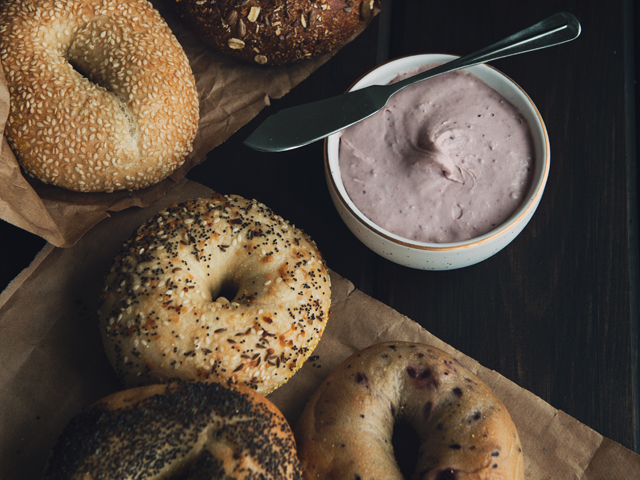Carbs: To Eat Or Not To Eat?

Carbs are always a popular talking point but with so much noise out there it can be tricky to untangle fact from fiction. We set the record straight and bust some common myths about carbs to help point you in the right direction.
Carbs are the cause of the obesity epidemic – MYTH!
As much as we'd love to be able to place the blame somewhere, the obesity epidemic can't be explained by carbs alone. The research consistently shows that a high carb calorie controlled diet alone doesn't lead to weight gain, it's far more complicated than any one thing. What we do know is that eating healthy carbs in the right amounts for us, actually has a whole host of health benefits like feeding our friendly gut bacteria, reducing short and long term illness, as well as boosting our mood too!
All sugars are bad for our health – MTYH!
Research shows that refined, 'free' or 'added' sugars are bad for our health, causing inflammation and chronic disease. 'Free' or 'added' sugars should be kept to a minimum for everyone – whether you have diabetes or not! These sugars are things like table sugar (any type), honey, syrups (golden syrup, agave syrup, rice bran syrup), as well as sugars added to foods and drinks like sweet drinks and many packaged and processed foods. On the flip side the research shows that natural sugars in whole fruit and dairy is NOT bad for our health. All the vitamins, fibre and minerals they contain means that these foods actually have a positive effect on our health. So please know you can, and should, eat these nutritious foods as part of a healthy balanced eating plan! Ask a dietitian for advice about portion sizes if you aren't sure what's right for you.
A low carb diet will help me lose weight - MYTH!
While you will benefit from reducing your carb intake if you're eating too much, it isn't a one size fits all approach when it comes to how much carb we should eat – we are all different! Many carbohydrate foods bring stacks of vitamins, minerals and antioxidants to keep our mind and body healthy. Focus on choosing whole, less processed options like vegetables, legumes, wholegrains, plain yoghurt or fruit for example. A dietitian can help you work out how much is just right for you.
Bottom line there are many nutritious carbohydrate rich foods that we all should be eating for our overall health and wellbeing. Focus on choosing less processed, high fibre, whole food options and if you are living with diabetes, see a dietitian who can help you to develop a plan to suit your individual carbohydrate needs, your food preferences, your personal goals and your lifestyle.
More info?
Look for a dietitian in your area here: https://daa.asn.au/find-an-apd/
Your GP can also provide further information on how to see a dietitian, or if eligible, how to access one using the Medicare rebate system.
Check our events page to see if we are running any workshops in your area: http://diabetesnsw.com.au/events/
Written by Mellissa Hay, Accredited Practising Dietitian from Diabetes NSW & ACT
Photo by Terra Evans on Unsplash
MORE



